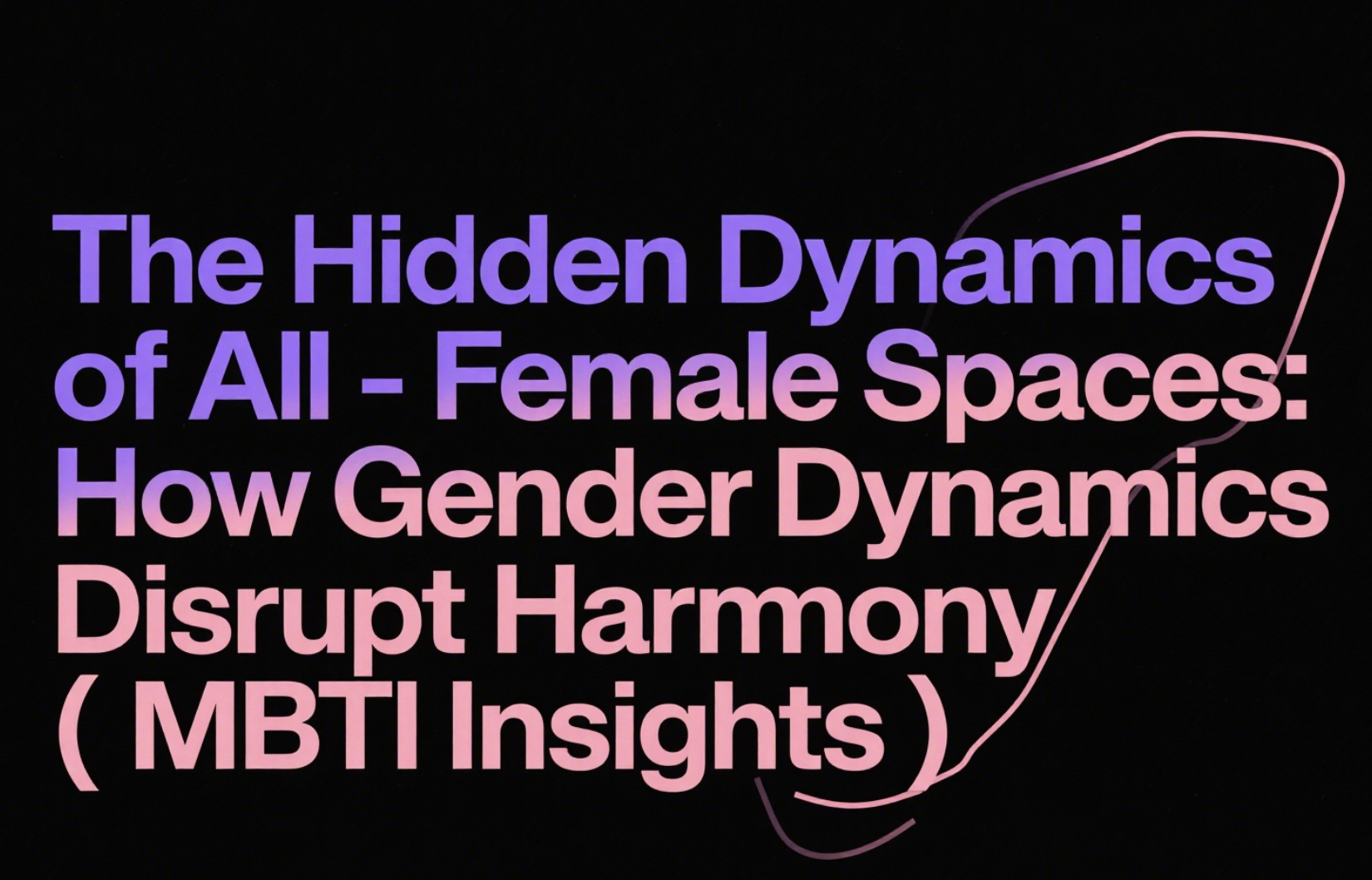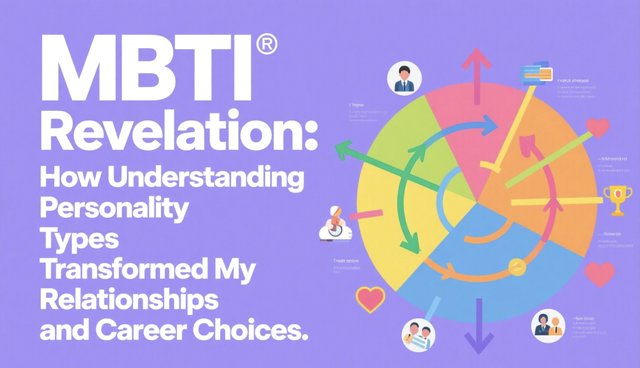The Hidden Dynamics of AllFemale Spaces: How Gender Dynamics Disrupt Harmony (MBTI Insights)

The Hidden Dynamics of All-Female Spaces: How Gender Disrupts Harmony
All-female environments—whether in workplaces, social circles, or online communities—often foster deep camaraderie, mutual support, and emotional safety. Many women describe these spaces as nurturing, free from the competitive or hierarchical pressures that mixed-gender groups sometimes introduce. However, a fascinating yet disruptive phenomenon occurs when men enter these spaces: the once-harmonious dynamic can fracture, revealing underlying tensions, power struggles, and unexpected alliances.
From an MBTI and psychological perspective, this shift can be analyzed through personality types, social conditioning, and group behavior. Let’s break down why this happens and what it means for personal and professional relationships.
1. The Illusion of Unity in All-Female Spaces
In the absence of men, many all-female groups operate on shared values of empathy, collaboration, and emotional validation. Women with strong Fe (Extraverted Feeling) functions—common in types like ENFJ, ESFJ, and INFJ—often thrive here, fostering harmony and mutual support.
However, this unity can be fragile. Without external pressures, differences in values, priorities, or personality traits may remain latent. Some women may suppress their true opinions to maintain peace, while others may assume everyone shares the same worldview.
2. The Introduction of Male Presence: A Catalyst for Division
When men enter these spaces, the group’s equilibrium shifts. Suddenly, power dynamics, romantic tensions, and societal expectations come into play. Women may unconsciously (or consciously) alter their behavior based on:
Social Conditioning: Many women are raised to prioritize male approval, leading some to adjust their attitudes, humor, or loyalty when men are present.
Competition: Romantic or professional rivalry can emerge, especially in workplaces where male attention may influence career opportunities.
Personality Differences: Thinking (T) vs. Feeling (F) types may clash—some women may prioritize logic and objectivity, while others resent perceived betrayal of solidarity.
This is where the divide between “normal women” (those who maintain their values) and “pick-me women” (those who seek male validation at the group’s expense) becomes apparent.3. The “Pick-Me” Phenomenon: A Betrayal of Trust?
The term “pick-me woman” refers to women who distance themselves from female solidarity to gain male approval. In MBTI terms, this could correlate with:
High Fe but low Fi (Extraverted Feeling dominant, Introverted Feeling underdeveloped): These individuals may prioritize external harmony over personal values, leading to people-pleasing behavior.
Unhealthy ESTPs or ESFPs: If their Se (Extraverted Sensing) dominance leans toward impulsivity, they may chase validation without considering long-term consequences.
When a previously trusted group member suddenly aligns with male perspectives—even at the expense of other women—it can feel like a psychological betrayal. The realization that someone was “a Trojan horse” (consciously or unconsciously undermining female solidarity) leads to disillusionment.4. The Workplace Implications: How Gender Dynamics Affect Careers
In professional settings, these dynamics can have serious consequences:
Office Politics: Women who align too closely with male leadership may be perceived as traitors, damaging team cohesion.
Leadership Struggles: Female leaders in male-dominated industries may face accusations of being “too harsh” (if they enforce boundaries) or “too soft” (if they advocate for empathy).
Career Advancement: Women who reject traditional gender roles may be penalized, while those who conform may gain short-term benefits but lose peer respect.
5. Solutions: Building Authentic Female Networks
To maintain healthy all-female spaces—whether in friendships or careers—consider these strategies:
Self-Awareness (Fi Development): Understanding your own values (common in INFPs, ISFPs) prevents people-pleasing traps.
Boundary Setting (Te/Ti Balance): Assertive communication (common in ENTJs, INTJs) helps maintain group integrity.
Inclusive Leadership: Encourage diverse perspectives without letting external influences disrupt core values.
Conclusion: Navigating Gender Dynamics with MBTI Insights
The disruption of all-female harmony when men enter isn’t just about gender—it’s about power, personality, and social conditioning. By understanding these dynamics through MBTI, women can build stronger, more authentic networks that withstand external pressures.
Whether in friendships or careers, recognizing these patterns helps women support each other genuinely—without hidden agendas or betrayals.
This structured, expert-driven analysis provides actionable insights while leveraging MBTI frameworks—perfect for ProMbti’s audience of career-focused individuals exploring personality and social dynamics.




